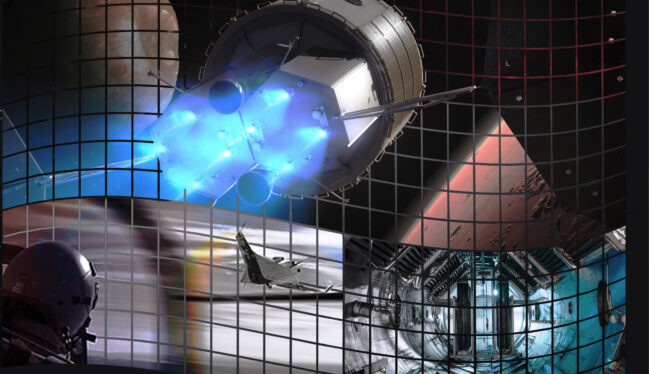4 min read
Preparations for Next Moonwalk Simulations Underway (and Underwater)

Transitioning cutting-edge research from the lab to life-changing technology in the market is no easy feat and the cost of failure is high, especially for small businesses. One of the ways NASA helps is through its Small Business Technology Transfer (STTR) program, which supports small businesses, and their research institution partners during early-stage research and development on a range of technologies that can benefit all.
After proving their concepts during Phase I, and finalizing negotiations, NASA announced Thursday 21 small businesses will receive Phase II awards worth up to $850,000 each. The funds will go toward developing, demonstrating, and delivering innovative technologies over the next 24 months, bringing them one step closer to infusion into a NASA mission or commercialization in the marketplace.
Each small business will collaborate with a research institution such as a university or Federally Funded Research and Development Center on their work—a requirement of STTR and a key differentiator from its sister program, Small Business Innovation Research (SBIR).
“The STTR program exists to unlock the power and innovative thinking enabled by partnership between small businesses and research institutions, said Jenn Gustetic, director of Early Stage Innovation and Partnerships under the Space Technology Mission Directorate (STMD) at the NASA Headquarters in Washington. “NASA is committed to creating equitable opportunities and removing barriers for underrepresented audiences, so we’re proud that in this batch of awards, one-third of the partnering research institutions are Minority Serving Institutions (MSIs).”
One of the awardees is SSS Optical Technologies, LLC, a Huntsville, Alabama, small business partnering with Oakwood University, a Historically Black Colleges and University also based in Huntsville. Together they will use the Phase II award to develop an innovative protective coating that absorbs damaging UV radiation and converts it into energy to power solar cells. The team prepared for their journey by participating in M-STTR—now the MUREP Partnership Learning Award Notification (MPLAN)—an initiative that connects MSIs with NASA to maximize the potential for long term collaborations and enhance future funding opportunities. Building off that early success, they won an STTR Phase I award, during which they demonstrated a 5% gain in efficiency while reducing radiation damage by 400%. The team will now focus their Phase II period on optimizing coating factors (composition, structure, and application method) for better efficiency and operational lifetime. If successful, their technology could find use in NASA’s Advanced Solar Sailing Technologies arena or in solar panels used in the commercial market.
“Our program is in a unique position to support small businesses and their research institution partners to de-risk their technologies with funding and guidance,” said Jason L. Kessler, program executive for NASA’s SBIR/STTR program. “We want these awards to give each team the backing needed to showcase the impact the technologies can have inside and outside NASA’s walls.”
This includes small businesses like Air Company Holdings, whichwas selected for a Phase II award to develop an alternative to fossil fuels. Based in Brooklyn, New York, the company is partnering with New York University to create a carbon dioxide hydrogenation technology that NASA can use to produce sustainable rocket fuel. The team will use their Phase II period to expand on the process model created in Phase I and optimize their fuel production and downstream processing, ensuring the produced fuel meets international standards. In addition to use as rocket fuel, this sustainable fuel could be used on Earth to address greenhouse gas emissions in the aviation industry or on Mars to produce a stable and storable fuel in-situ—using only the Martian atmosphere, water, and solar photovoltaic electricity—which could be used to power habitats, and more.
The NASA SBIR/STTR program is part of NASA’s Space Technology Mission Directorate and is managed by NASA’s Ames Research Center in California’s Silicon Valley. To learn more about the NASA SBIR/STTR program, visit:







